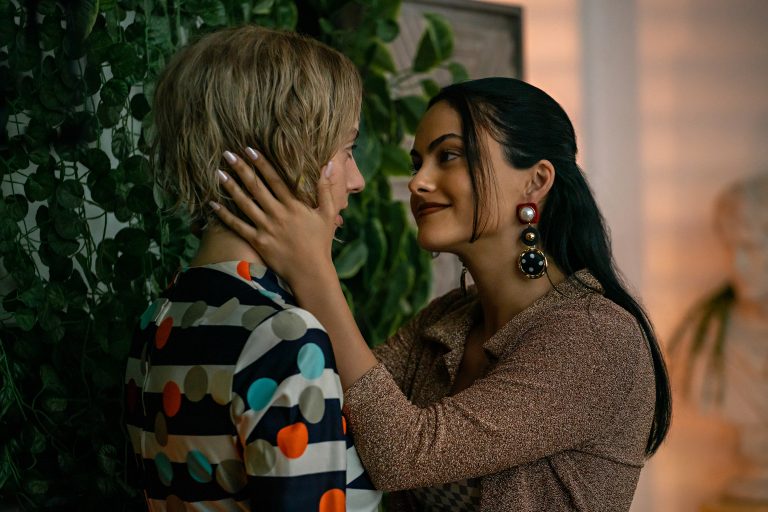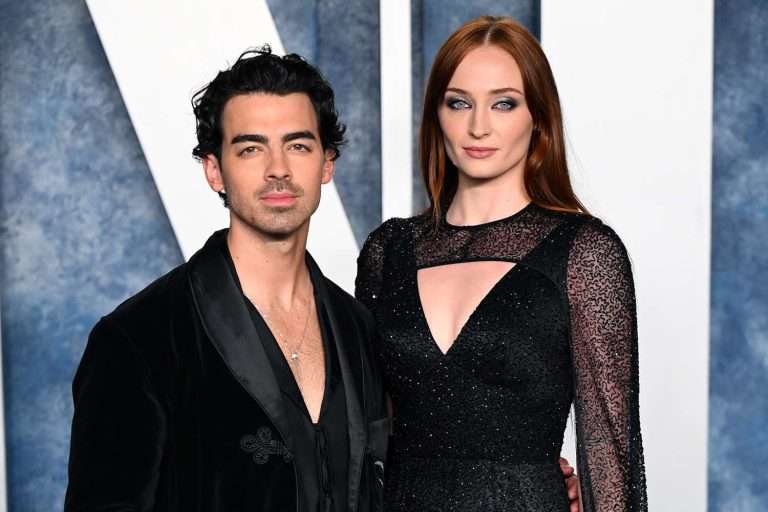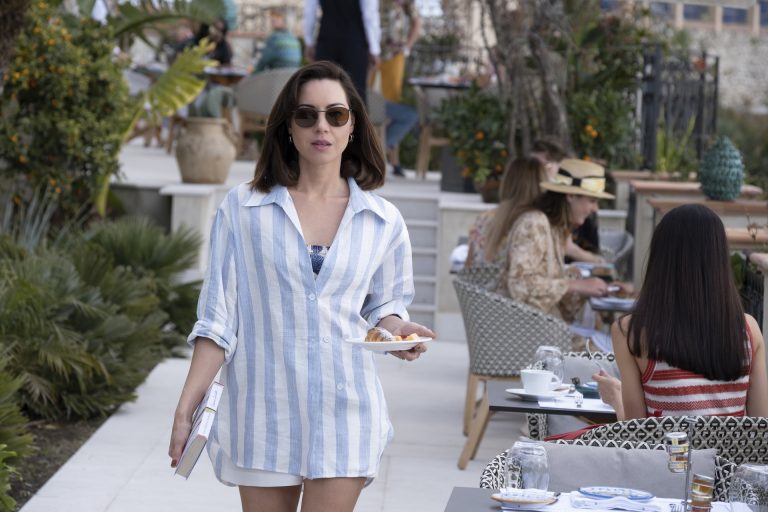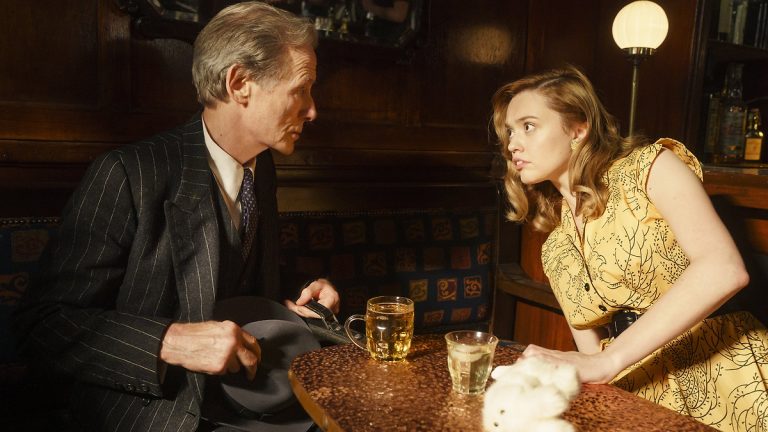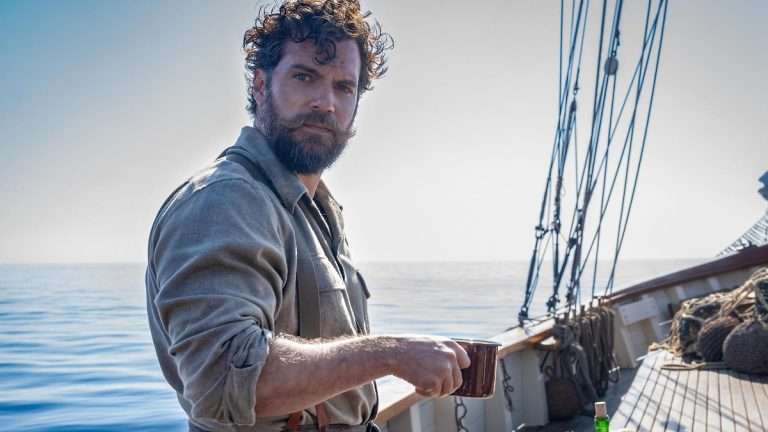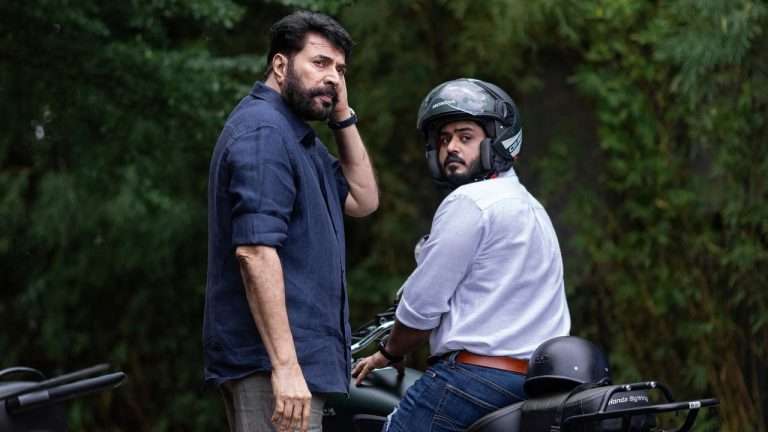Lightyears away from Michael Winterbottom’s previous work—24 Hour Party People (2002), A Cock and Bull Story (2005), and Greed (2019)—comes a film that doesn’t star Steve Coogan. Screening as part of the 67th BFI London Film Festival, Shoshana is a tense geopolitical thriller that attempts (if not always successfully) to let every side tell their story.
By refraining from promoting one ideology over another, the boundaries between each party are often unclear, and characters move between loyalties like shifting sand. Unraveling in Tel Aviv—an Israeli city on the Mediterranean coast—Shoshana lifts the curtain on a lesser-known slice of pre-WWII history. In British Mandatory Palestine, British officers are met with a paramilitary organization called Irgun, who have grown increasingly hostile since the Brit’s arrival in 1920.
By the time Shoshana begins, it’s 1938, and Palestinian locals must choose between supporting an unwanted foreign occupation or extreme nationalist resistance. This creates a sort of triangle of opposition, with Shoshana Borochov at its centroid. Impressively played by Irina Starshenbaum in her first English-speaking role, Shoshana is the daughter of a Zionist activist and finds herself torn between worlds. Yet, despite her life-threatening situation, Shoshana never succumbs to panic, crying, begging, or lying her way out of conflict. Instead, Shoshana remains strong-willed, staunchly independent, and in tune with her own moral compass.
Foregrounding the landscape of terrorist bombings and police torture is the nonchalant love story between Shoshana and English policeman Thomas Wilkin, portrayed by Douglas Booth. Based on a real couple (within a fictionalized version of events), Shoshana receives death threats for fraternizing with the occupying enemy while the British take note of her nationalist brother. Shoshana herself is a Russian émigré journalist who wishes to obtain an independent Jewish state without waterboarding anyone. Thomas wants the same, or thereabouts, having fallen in love with the city and Shoshana and even learning Hebrew to make it his home.
Albeit “Shoshana” is objectively a love story, it is not a romance film. There is no desperate, to-die-for adoration between Shoshana and Thomas. They enjoy each other’s company in a nuanced way. It’s a casual sort of love story—one that could easily be mistaken for lack of chemistry but probably more to do with everything else going on around them.
Living amid political strife and active terrorism—especially with a career in the law/news—means Shoshana and Thomas don’t have time for the whirlwind romance found in Hollywood movies. Thomas proposes informally over post-bedroom, half-undressed cigarettes, and Shoshana replies simply that she doesn’t know. There’s her reputation, her job, her country—her life—to think about. Ultimately, Shoshana’s love for Thomas is made apparent when tragedy takes a battering ram to her highly built emotional walls.
The final shot of Shoshana staring sternly into the camera, firing ceaselessly from a machine gun, has a fierce quality to it that imprints on viewers long after the credits roll. It’s as if “Shoshana” is a Shakespearean play. Still, instead of Juliet killing herself in the end, she decides to take revenge on the Montagues, waving goodbye to her father’s peaceful dreams for Israel.
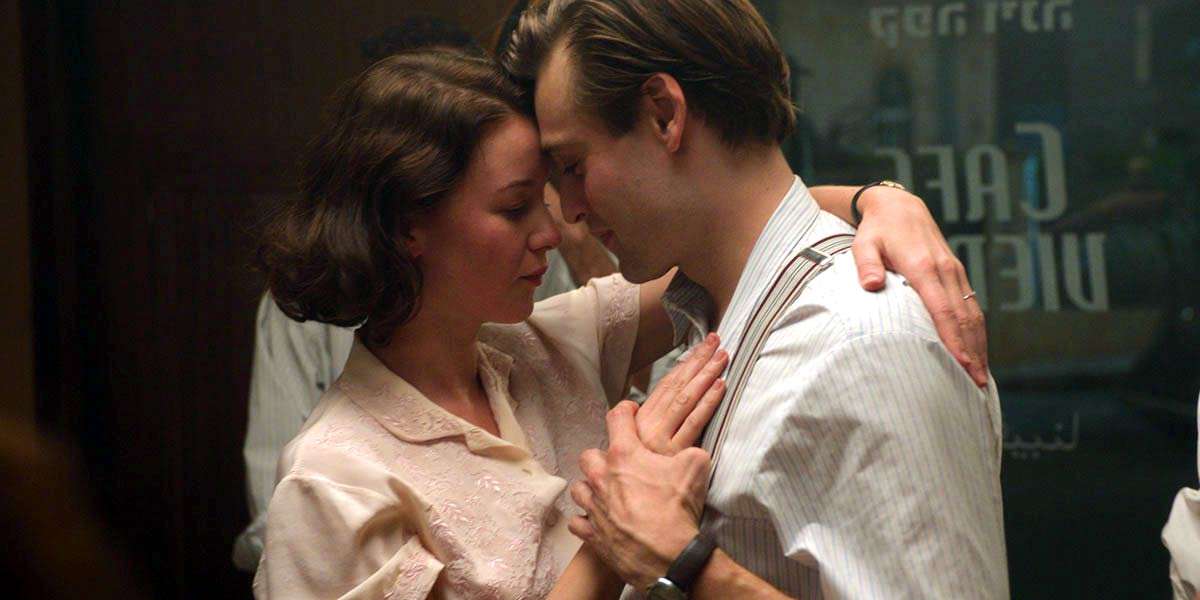
Shoshana is certainly the knot that ties all the ropes, characters, sides, and subplots together. And it’s a firm hold indeed, thanks to Starshenbaum’s steady performance. We take Shoshana’s hand as our guide throughout the complex political narrative, where sometimes you must rely on the wardrobe design or general tone to decipher who’s considered good or bad at any given moment. For example, when we meet Thomas’s strict superior officer Geoffrey Morton (Harry Melling), his British uniform speaks volumes of his merciless stance towards the nationalists, whereas Thomas—though on the same side as Geoffrey—boasts a gray suit that blends him in with the locals (“soldiers without names or uniforms, we are,” says Avraham Stern—poet and head of Irgun, dressed in a similar gray suit, played by Aury Alby).
Although Winterbottom takes a generally anti-colonial stance in “Shoshana,” no Arabic character of real substance, empathy, or development exists. Unlike the English-speaking characters, the Arabs are either killing people or being killed. Villain or victim. On a similar note, trying to give every side equal airtime can spread the narrative a little too thin, covering too much ground for anything to be completely realized. Only Shoshana is given room to breathe and connect with the viewer fully.
That said, “Shoshana” achieves a steady pace where the action can speed up without rushing and slowing down. Everything is polished and clean looking, thanks to cinematography by Giles Nuttgens, with crisp white walls calling to mind a summer vacation getaway. The jeweled Mediterranean Sea waves to us in the background, glittering through lunchtime martinis where the topic of conversation is terrorism. Beyond the cafés, a local woman hangs her washing on the patio, sheets flapping in the gentle breeze, and moments later, a bomb detonating next door.
This use of juxtaposition also appears in the newsreels, where a familiar British voice counts up the death toll, sounding like a vintage advert for a holiday resort while soldiers and corpses saturate the grainy film footage. Visually, “Shoshana” is pristine to watch, occasionally artistic, and never gruesome for the sake of it. We don’t witness too many of the shootings and torture sessions. Still, when brutality does rear its head—like the premature detonation of a bomb, leaving its maker more blister than man, gasping through his final agonizing moments (to which a British officer replies, “That’s one less of them”)—it’s all the more powerful. Enough to make us wince and yearn for the fighting to stop—fighting that really happened but is rarely taught in classrooms.
Winterbottom’s 15-years-in-the-making passion project successfully navigates the political turbulence of a divided nation, chiefly through its strong female lead and the atmosphere we learn to read for clues. Shoshana doesn’t particularly break any new ground or push any boundaries, but it’s still a rewarding and educational watch.



